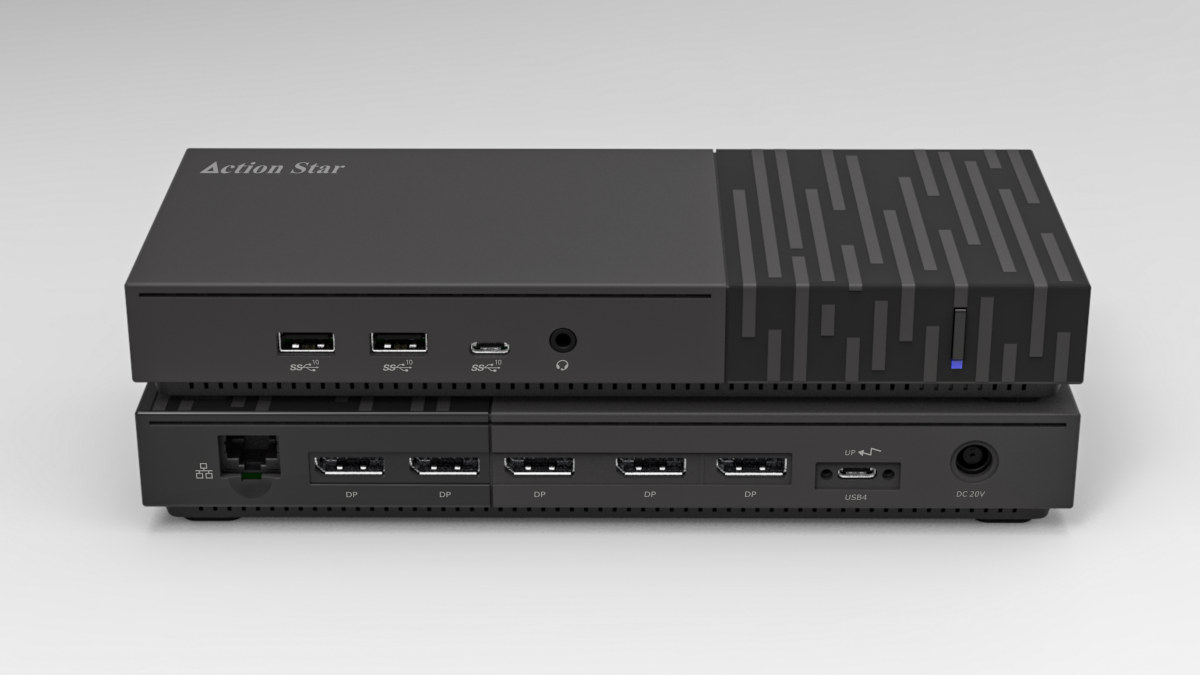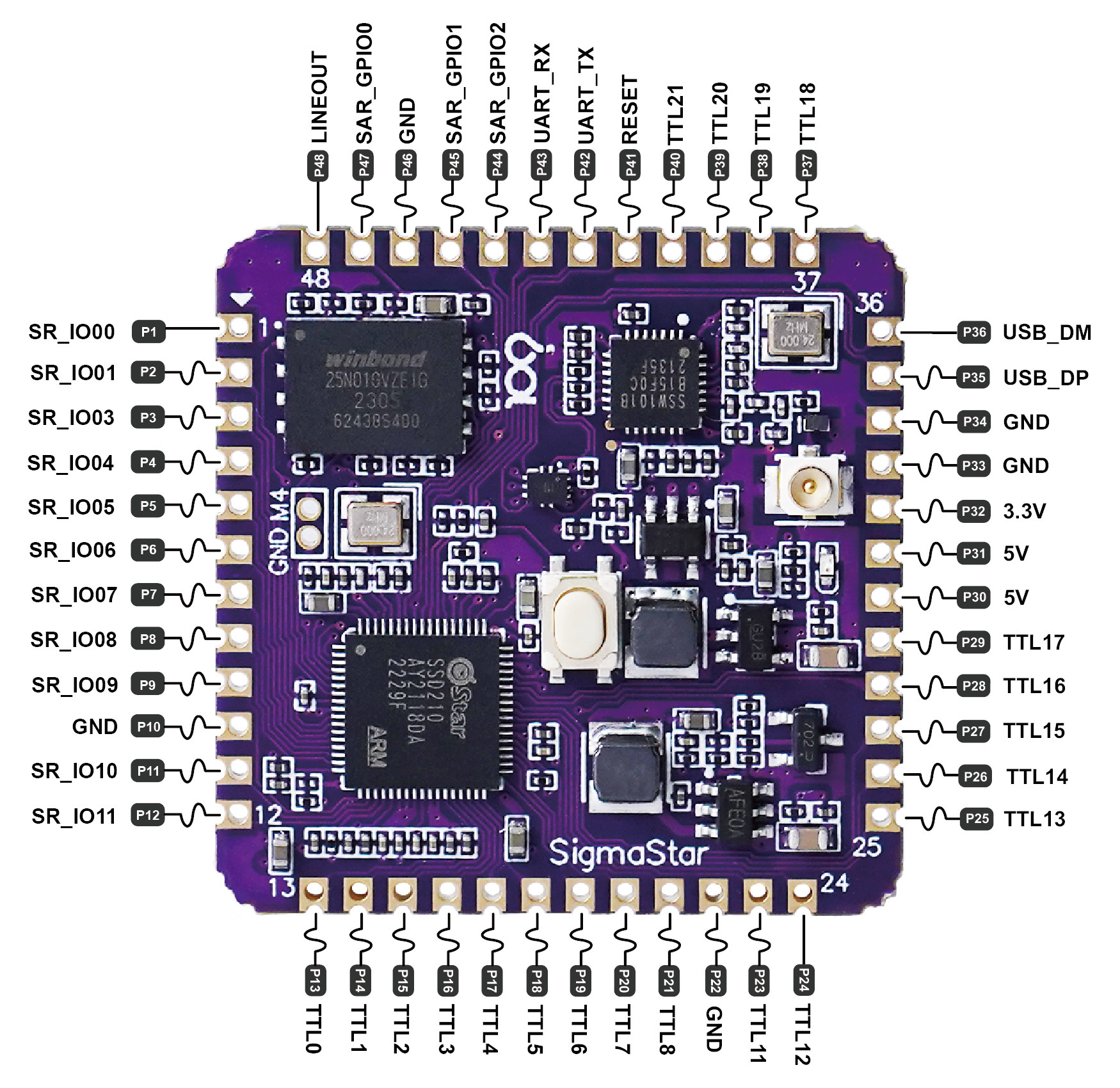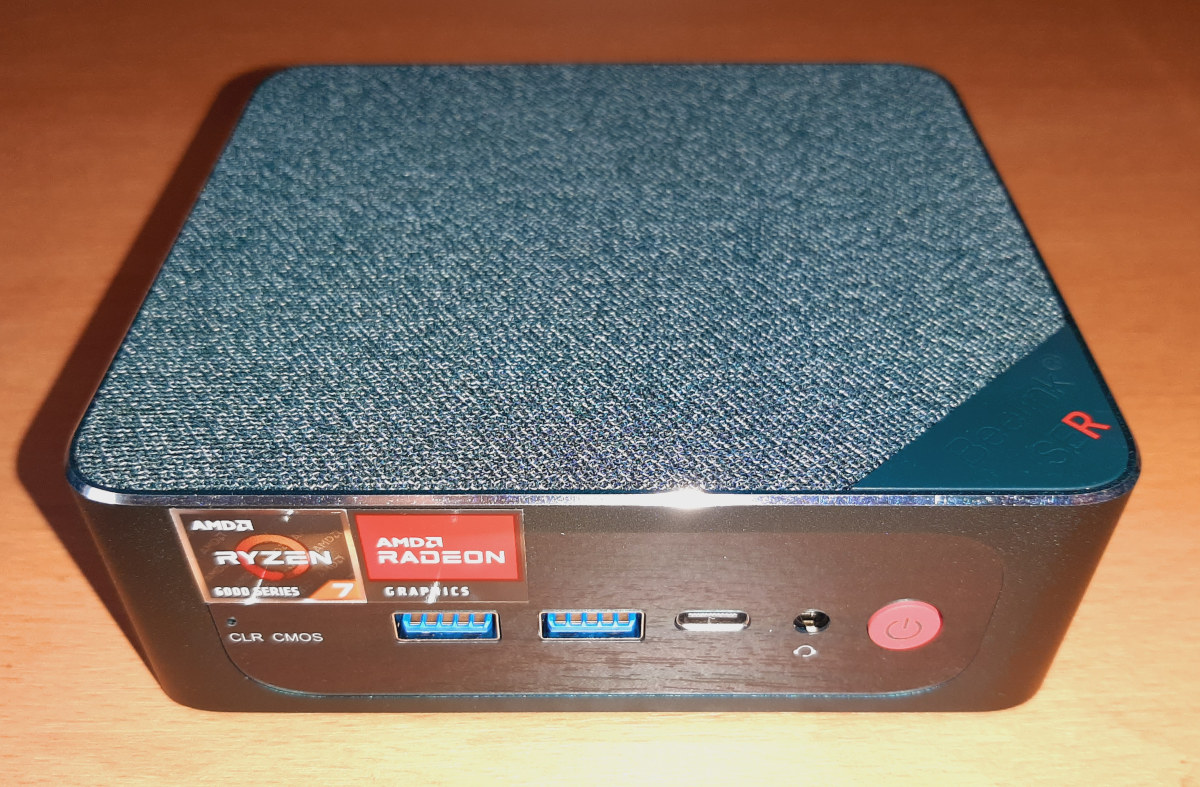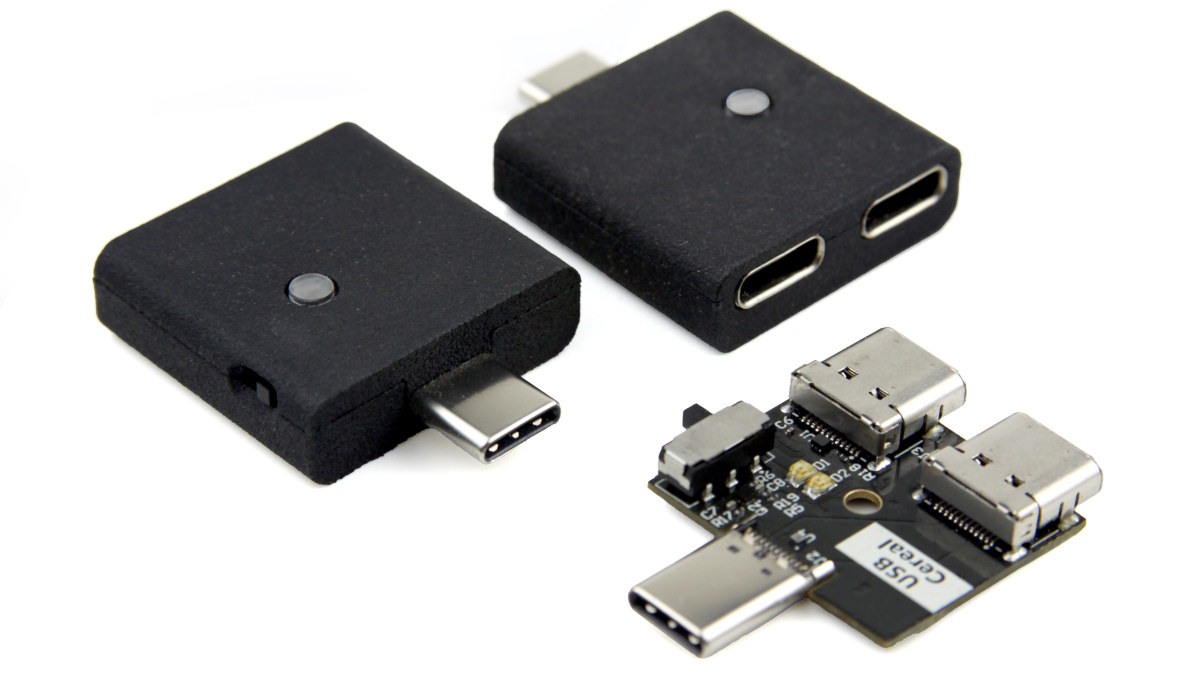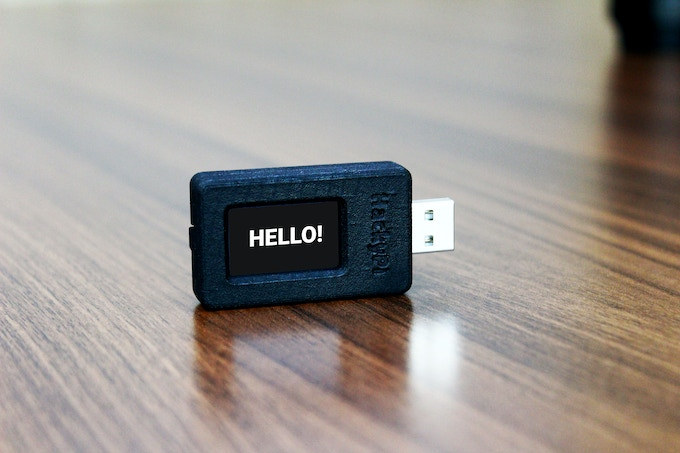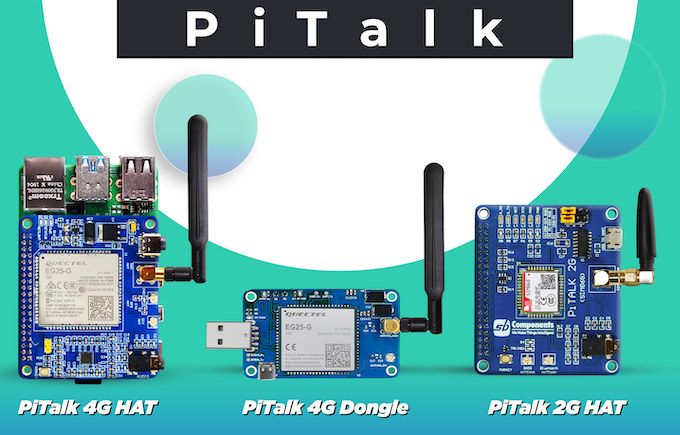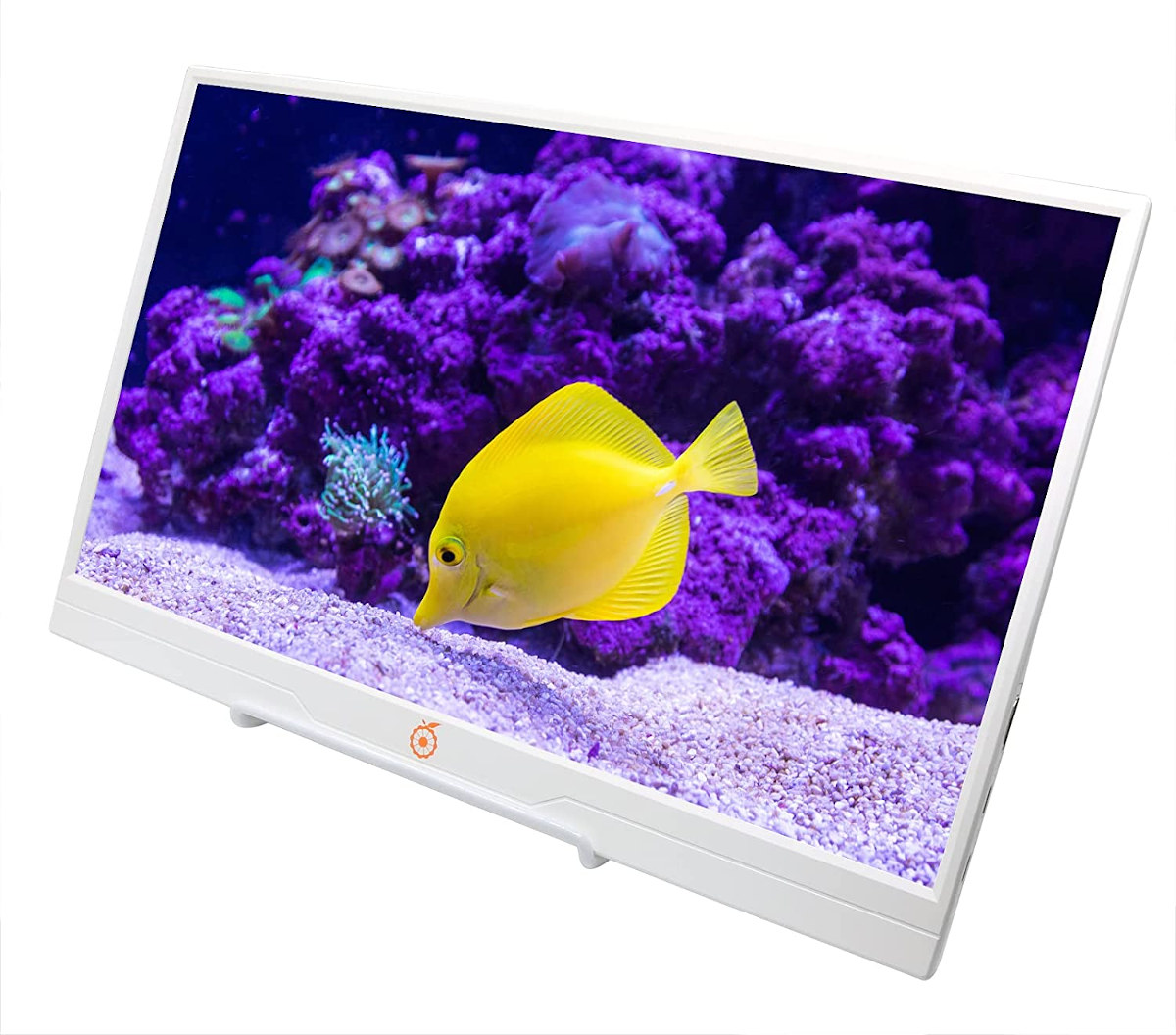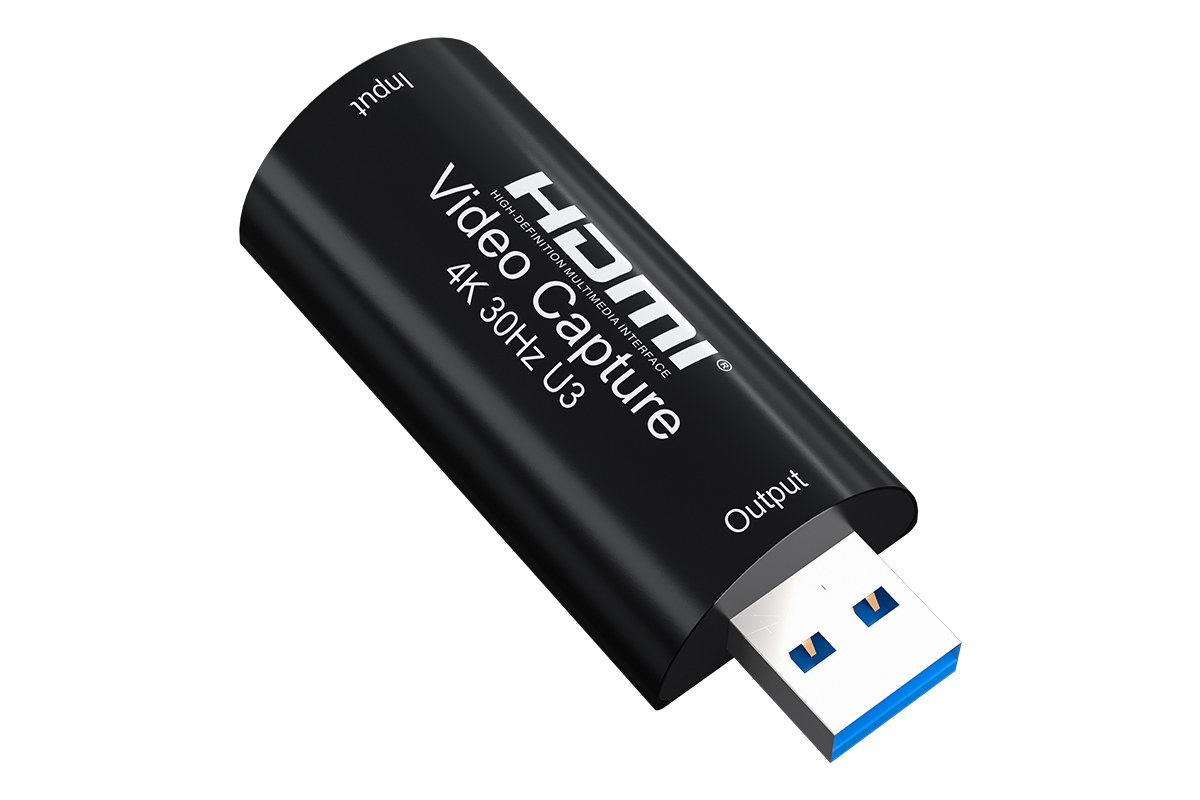Action Star Technology, a Taiwanese OEM/ODM of USB productivity solutions part of Qisda (BenQ group), has unveiled its USB4 penta-4K120 docking station at Computex 2023 with support for up to five 4K displays at a refresh rate of up to 120 Hz. The docking station is based on Synaptics chips, and besides support for up to five 4K displays, it can also handle up to three 8K displays at 60+ Hz, and offers Ethernet, audio, and 10 Gbps USB 3.2 interfaces. USB4 Penta-4K120 docking station specifications: USB4 docking station backward compatible with USB-C/USB 3.x Based on Synaptics VMM9430 DisplayPort 2.1 (DP 2.1) multi-stream transport (MST) hub and DisplayLink DL-7400 universal display docking solution. See the separate (January 2023) press release about the chips Display Support up to 5x 4K/120Hz video outputs 1x native DisplayPort up to 8K/85Hz using DSC (8K/75Hz for HDR) 4x DisplayLink outputs up to quad 4K/120Hz or […]
$7 DongshanPI-PicoW is a small Arm Linux board with SSW101B USB WiFi chip, four 12-pin headers
Based on its name, the DongshanPI-PicoW board/module aims to be an Arm Linux alternative to the Raspberry Pi Pico W with a SigmaStar SSD210 dual-core Cortex-A7 processor with 64MB RAM, an SSW101B USB WiFi 4 chip, plus a good amount of I/Os thanks to four 12-pin headers. The module also comes with a 128MB SPI flash to run Linux, takes 5V power input, and offers a display interface up to 1280×800, USB 2.0, audio interfaces, and more in a small 31×31 mm form factor with 48 through and castellated holes that should be easy to integrate into compact devices. DongshanPI-PicoW specifications: SoC – SigmaStar SSD210 dual-core Arm Cortex-A7 at up to 1.0GHz with FPU, NEON, MMU, DMA, 2D graphics accelerator, 64MB on-chip DDR2 RAM Storage – 128MB SPI NAND flash (Winbond W25N010) Connectivity – Sigmastart SSW101B 802.11b/g/n 2.4GHz 1T1R WiFi 4 module + u.FL antenna connector USB switch – Onsemi […]
Beelink SER6 Pro mini PC review – Windows 11, Ubuntu 22.04, and USB4
Beelink upgraded their earlier SER6, which used an AMD Ryzen 5 6600H processor with integrated AMD Radeon 660M graphics, and released the SER6 Pro which has a faster AMD Ryzen 7 6800H processor with much more powerful integrated AMD Radeon 680M graphics. Beelink kindly sent a SER6 Pro unit for review however since receiving the mini PC, Beelink have ‘refreshed’ the processor to use an AMD Ryzen 7 7735H also with AMD Radeon 680M graphics, and called it the SER6 Pro Refresh. As a result, this review looks at Windows performance which should be indicative for both versions, together with a quick look at running Ubuntu and also a more detailed look at the USB4 port which is a new inclusion to Beelink’s mini PCs. Update: you may be interested in the review of the Beelink SER6 Pro 7735HS – in Windows 11 only – as we’ve also received it […]
USB Cereal is an open-source hardware USB-C debugging & development tool (Crowdfunding)
0xDA LLC’s USB Cereal is an open-source hardware development tool with three USB-C ports designed to simplify the testing, development, debugging, and manufacturing of devices with USB Type-C ports. Initially originated at Google, the USB Cereal project has gone through multiple revisions to optimize its quality and lower the BoM cost, and the device can be used for all sorts of USB Type-C debugging using a UART serial communication with the host device through the USB-C sideband use (SBU) pins typically reserved for device-specific applications. USB Cereal specifications: USB Type-C ports 2x USB-C ports for passthrough between the host and device under test (DUT) Note: the DUT port is on the side with a single USB Type-C connector No orientation detection has been implemented to keep the design as simple and inexpensive as possible 1x USB-C port for capture support to 3 Mbps connected through FTDI FT232RNQ USB to TTL […]
HackyPi Raspberry Pi RP2040 USB dongle serves as an educational “hacking” tool (Crowdfunding)
SB Components’ HackyPi is a Raspberry Pi RP2040-based USB dongle whose main purpose is to teach ethical hacking and coding programs, in other words, some sort of portable educational hacking tool. The small USB stick features a 1.14-inch color LCD, a MicroSD card to store data such as scripts and photos, and a button to enable programming like on other Raspberry Pi RP2040 boards. HackyPi specifications: MCU – Raspberry Pi RP2040 dual-core Cortex-M0+ microcontroller @ 133 MHz with 264KB SRAM Storage – QSPI flash, MicroSD card slot Display – 1.14-inch color LCD with 240 x 135 resolution USB – 1x USB 1.1 Type-A port Misc – Boot “Initiate Program” button Power Supply – 5V via USB port Dimensions – 55.04 x 23.20mm SB Components says the HackyPi USB dongle can be programmed with Raspberry Pi Pico C/C++ and MicroPython SDKs as well as CircuitPython, and they will release hardware design […]
PiTalk 4G HAT for Raspberry Pi / 4G USB dongle targets M2M and IoT applications (Crowdfunding)
PiTalk is a 4G cellular connectivity solution based on Quectel EG25-G LTE Cat 4 module intended for M2M and IoT applications, and available either as a Raspberry Pi HAT or as a USB dongle. There’s also a PiTalk 2G HAT, but we’ll focus on the 4G hardware in this article. PiTalk supports data rates up to 150 Mbps downlink and 50 Mbps uplink, integrates GNSS support, and as its name implies you can also make and receive calls, or send/receive SMS messages for the device provide you connect a display, speaker, and microphone to the Raspberry Pi or other host device. PiTalk 4G IoT HAT specifications: Quectel EG25-G 4G LTE cellular module: Cellular 3G and 4G LTE with 2G fallback Max. 150Mbps DL/ 50Mbps UL Global bands support 4G LTE-FDD: B1/B2/B3/B4/B5/B7/B8/B12/B13/B18/B19/B20/B25/B26/B28 4G LTE-TDD: B38/B39/B40/B41 3G WCDMA: B1/B2/B4/B5/B6/B8/B19 2G GSM: B2/B3/B5/B8 GNSS – Qualcomm IZat location technology Gen8C Lite (GPS, GLONASS, […]
Orange Pi launches 14-inch portable monitor for $59
Shenzhen Xunlong Software, better known under the Orange Pi brand, has launched a 14-inch Full HD portable monitor for $59 plus shipping on Aliexpress, or a little more on Amazon. The company is better known for its low-cost Arm-based single board computers with Rockchip or Allwinner processors, but this time, they launched an accessory with a 14-inch display taking HDMI or USB Type-C input with up to 1920×1080 resolution. Orange Pi portable monitor specifications: Display 14-inch a-Si TFT LCD Resolution – 1920×1080 Refresh rate – 60 Hz Color – 262K, 45% NTSC Contrast – 700:1 Viewing angles – 85°, 85°, 85°, 85° typical Video inputs 1x HDMI port for video and audio 2x USB Type-C ports for power, video, and audio (which standard is used, they don’t say) Audio – Stereo speakers, 3.5mm headphone jack Misc – Iron stand Dimensions – 325 x 204 x 8.5 to 15 mm Weight […]
MS2130 based “4K” HDMI to USB 3.0 video capture dongle sells for $19
4K HDMI to USB 3.0 dongles based on Macrosilicon MS2130 video and audio acquisition chip are starting to show up on Aliexpress for around $19 with free shipping. We first discovered the MS2130 chip in the YuzukiLOHCC PRO open-source hardware board that claims to have a bills-of-material cost of about $10. But you have to build it and source the components yourself, so it’s not for everyone. Now USB 3.0 adapters capable of recording or streaming up to 1080p60 uncompressed video from an HDMI input up to 4Kp30 are available to anyone with around $20. “Mini U3” HDMI to USB 3.0 video capture dongle specfications: Main chip – MacroSilicon/UltraSemi MS2130 USB 3.2 Gen 1 high-definition video and audio acquisition chip HDMI input up to 4Kp30, 24/30/36-bit depth color Video Output up to 1080p60 in YUV or JPEG output format Audio – L-PCM codec Input cable length – Up to 15 […]


